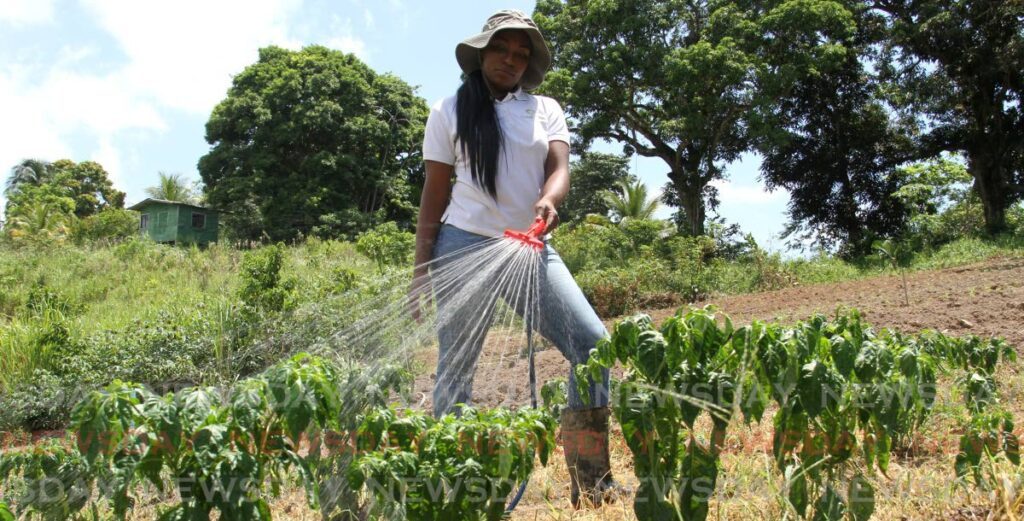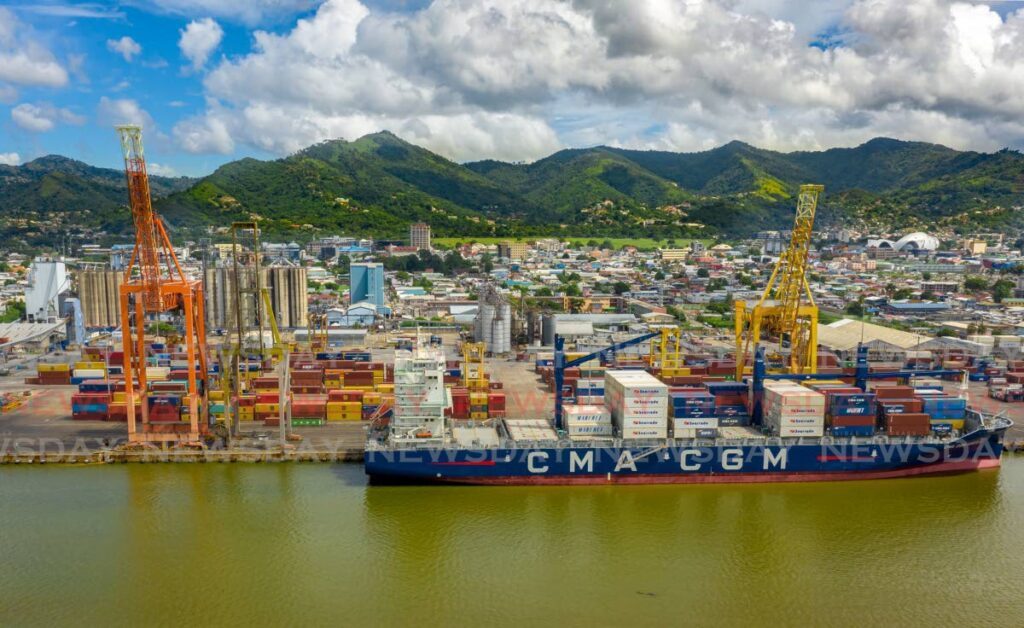Businesses call for focus on vulnerable sector for 2025

The year 2024 was a big year for economic diversification, with the manufacturing sector continuing its upward expansion and engagement through trade missions and conventions.
The non-energy sector is part of the reason the Minister of Finance says the economy is expected to see a third year of consecutive growth and the IMF country report estimated real GDP increasing to 1.6 per cent for 2024.
But while certain sectors have seen growth, others were faced with a list of challenges that stymied their ability to contribute to the diversification of the economy.
Systematic issues such as challenges at the port, as well as shortages of foreign exchange (forex) have left certain sectors, such as retail, vulnerable.
Some figures in the business community are calling for the government to focus on these sectors on a policy level, through tailor-made initiatives for their recovery and growth.
Business community: Focus on vulnerable sectors
Vivek Charran, president of the Confederation of Regional Business Chambers, said, "I think government incentives will play an important role in reducing the barriers to diversification for small and medium businesses in the retail sector. These initiatives have to be targeted directly toward them."
Charran said some of the biggest barriers to growth in the retail sector are bureaucracy, accessing capital investment for start-ups and a lack of access to concessionary measures for small and micro-businesses.
He said the government opened the floor for businesses to diversify, but space for these opportunities to grow were taken up quickly by people who had the initial capital to invest.
"It is now more important to look at the vulnerable and the people who are not doing well, such as the retail sector."
The Ministry of Finance announced on November 3 that it had decided to reopen the forex window, giving EximBank access to US$25 million to distribute to importers of essential items.
The window was created in 2020 in response to the covid19 pandemic and ran until September 2024.
Additionally, the Trade Ministry's export booster initiative, through its Trade and Investment Promotion Agency (TIPA) – which is mandated to help TT become a leading hub for international trade through the promotion of goods, services, information, technology, maritime services and the arts – contributed to the growth in the non-energy sector.
At a Unit Trust Corporation (UTC) Scale-up event in December, Minister of Trade Paula Gopee-Scoon pointed out the manufacturing sector as leading the charge in economic diversification.
UTC Scale-Up is a business accelerator programme, started through UTC and carried out through the UTC and Ministry of Trade, designed to help local entrepreneurs accelerate their businesses to be ready for export markets.
TTMA’s trade missions, more than 39 in all, were in the Caribbean, North America, Latin America and Africa, with several business deals being struck in the process.
She said the joint trade mission to Ghana from March 10-17 this year has already resulted in exports.
Gopee-Scoon said National Flour Mills (NFM) sent containers of pet food to African countries, and other companies were assembling batteries.
eTeck
eTeck parks, which provide easy access to markets and global business networks as well as modern facilities and infrastructure, also provide avenues for diversification, Charran said.
President of the Chaguanas Chamber of Industry and Commerce Baldath Maharaj said there are areas that could see exponential growth and contribute to diversification in the coming year.
"Agriculture, for instance, can benefit significantly from the adoption of modern technology that improves yield per acre while using smaller land spaces. Precision farming techniques, vertical farming, and hydroponics are just a few examples of innovations that can transform agricultural production, reduce dependence on imported food, and create sustainable jobs."
But Charran said growth in these areas would need access to hard-to-come-by forex, and support from banking and financial institutions for start-up companies.
"While eTeck parks help businesses to diversify to marketing and food processing and so on, there aren’t many spaces left in eTeck parks, and there are other issues.
"Agriculture is a similar thing. People say invest in agriculture, but if you want to invest properly in agriculture, then tenure of land is most important. That is what will allow you to get concessions.
"First of all, where are you buying agricultural land, and what is the price at which you are buying it? How much agricultural land is out there in a concessionary lease to allow for people to diversify into crops?"
He added that hi-tech agriculture such as greenhousing will have import costs.
"There are a lot of hydroponic materials down here, but in terms of constructing newer, more modern-type greenhouses for agriculture, those are things that have a heavy US-dollar content with that."
Challenges at port, forex create problems
Maharaj said while TT has seen some growth in non-energy sectors such as manufacturing, tourism, creative industries, financial services and tech, the benefits of this growth have not been realised because of systematic challenges and a lack of robust policy.
"For years, foreign investors have consistently raised concerns about the ease of doing business in the country, with persistent issues at the ports being a primary complaint.
In October, industrial action at the Port of Port of Spain made the retail sector grind to a halt.
Port workers downed tools on October 2, stopping most port operations. The protests began as early as August, over stalled negotiations and poor conditions.

Tobago port workers also began protesting, citing health concerns and poor conditions in the warehouse.
The Seamen and Waterfront Workers Trade Union (SWWTU) called for a 12 per cent wage increase for the 2014-2017 period.
President general of SWWTU Michael Annisette said they were promised the increase by former transport minister Stephen Cadiz.
Workers instead received an offer of two per cent from the government, which they rejected.
The union was hauled before the Industrial Court in November, days after four of the major business chambers in the country – the TT Chamber of Industry and Commerce, the TT Manufacturers’ Association, the American Chamber of Commerce of TT and the Energy Chamber – called on the government to bring a swift resolution to the port crisis.
Since Christmas is one of the busiest periods of the year, efficient port operations are important.
The Port Authority of TT’s website says in 2023, the port handled $317,322 containers for the year.
For 2024, up to the month of November, the port handled 297,040 containers, with significant drops in containers processed in October and November.
Maharaj said the problems at the port were not limited to the recent industrial action but include bureaucratic delays, poor infrastructure, and inefficiencies that increase the cost and time required to import and export goods.
"Combined with the scarcity of forex, these issues limit investment opportunities and affect the competitiveness of local businesses on a global scale."

Forex availability had a significant effect on business this year, especially in the retail sector, which depends on forex to facilitate imports.
Banks began restricting access to foreign exchange by imposing smaller limits credit-card transactions and allocations of foreign exchange.
In July, the Royal Bank of Canada announced that its personal banking and business banking clients’ monthly limits would be reduced.
Monthly limits went down from $51,000 (US$7,500) to $41,000 (US$6,000) in forex equivalent. The reduction took effect on September 1.
Scotiabank also reduced limits for Visa debit cards for overseas transactions from December 1. Mastercard Black holders were reduced to US$5,000 and to US$ 2,000 per month for all other cards.
Republic Bank reduced its limits last September, from US$10,000 to US$5,000.
The Bankers’ Association of TT said in a release on November 5 that its members manage its forex allocations in compliance with policies from the Central Bank of TT.
It said banks are given a fixed allocation of forex from the Central Bank. They are mandated to distribute the forex at a specified spread and are prohibited from buying forex above a certain rate.
In an interview in November, Minister of Finance Colm Imbert explained disbursements of forex to the public are done according to an "honour system."
He said after disbursement, it is expected that banks would exercise responsibility, equity and justice in distributing forex.
"We can go to the other extreme…where we can particularise that a percentage of this allocation should go to SMEs, for medical expenses, education travel, imports for manufacturers etc."
He said the ministry plans to talk to the chambers of commerce and TTMA about whether the honour system should be changed.

Comments
"Businesses call for focus on vulnerable sector for 2025"